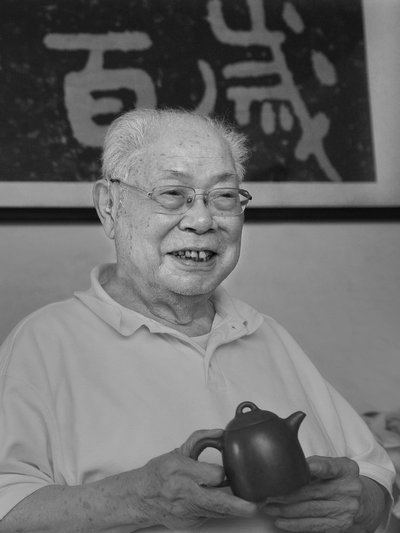

Acclaimed writer Ma Shitu died, aged 109, on Thursday in Chengdu, Sichuan province.
Ma, whose real name is Ma Qianmu, started writing at 18, and published 29 titles. His personal corpora was published in 2018, spanning 18 volumes.
He was widely known for his novel Ye Tan Shi Ji (Ten Amazing Stories), which was adapted into the 2010 movie Let the Bullets Fly, directed by Jiang Wen. The movie became an instant hit when it was released, and is still among the highest-ranked films on video-sharing platform Bilibili, where it has been given an average score of 9.9 out of 10 by 140,000 viewers.
"Ma's time has come. It's actually good when one can live up to almost 110 years old," Jiang said in an interview with Chengdu-based Red Star news on Thursday. "But I still feel reluctant to say goodbye to such a great man who masters both the gun and the pen well."
Born in Zhongxian, Sichuan, in 1915, Ma's work impressed many with its strong Sichuan flavor, highlighting the local dialect, styles and folk culture, as well as his record of, and reflection on, the country's revolutionary history and heritage.
Besides being a writer, Ma was known as a revolutionary. He had been a member of the Communist Party of China for 86 years, after joining the Party in 1938.
Ten Amazing Stories, of which one of the 10 chapters was rendered on celluloid by Jiang, is based on Ma's years as an underground soldier. The process of writing and publishing the book itself testifies to the hardships the writer endured.
Ma started writing in 1942, and finally got the book published in 1983. Because his draft had been damaged three times over the course of 40 years, he had to rewrite it four times.
Tie Ning, chairperson of China Writers Association, remarked in 2020: "I'm moved by Ma's fearless and optimistic nature, which provides the perfect combination of the firmness of a revolutionary and the vigor of a literary creator."
A Lai, also a well-known writer from Sichuan, known for Red Poppies and The Song of King Gesar, told The Paper on Thursday that he has been a fan of Ma's works since the age of 18.
"His novels deliver Chinese style and aesthetics, and carry on the tradition of ancient writings in recounting folk tales," A Lai said.
Another aspect of Ma that impressed A Lai was the energy and diligence he had for his work, mainly in writing and reading, even after he turned 100.
"He finished and published two books after reaching 100, showing a strong spirit to strive for better," A Lai said.
One of his publishers, Huang Lixin with Sichuan People's Publishing House, recalled that Ma was enthusiastic when discussing drafts with editors, and "would hold a magnifier to examine them word for word".
The optimism and energy of his hometown marked his writings, too.
"Sichuan flavor to me ... is the combination of atmosphere, the language, the temperament and the humor of its people, and the customs and landscape of the province," he once wrote in an article.
Ma was an accomplished calligrapher, an art form he started practicing at the age of 6. In 2014, he donated 2.3 million yuan ($318,000) from the auction of his calligraphic works to establish a scholarship program at Sichuan University to encourage writing among young people.
Ma once shared the secret to his longevity, concluding that it came down to five things: being able to eat well, to sleep soundly, to walk far, to write, and to bear challenges.
"I don't know why, but I managed 106, and I'm still walking, talking and writing, and publishing a new novel," he said in 2020.